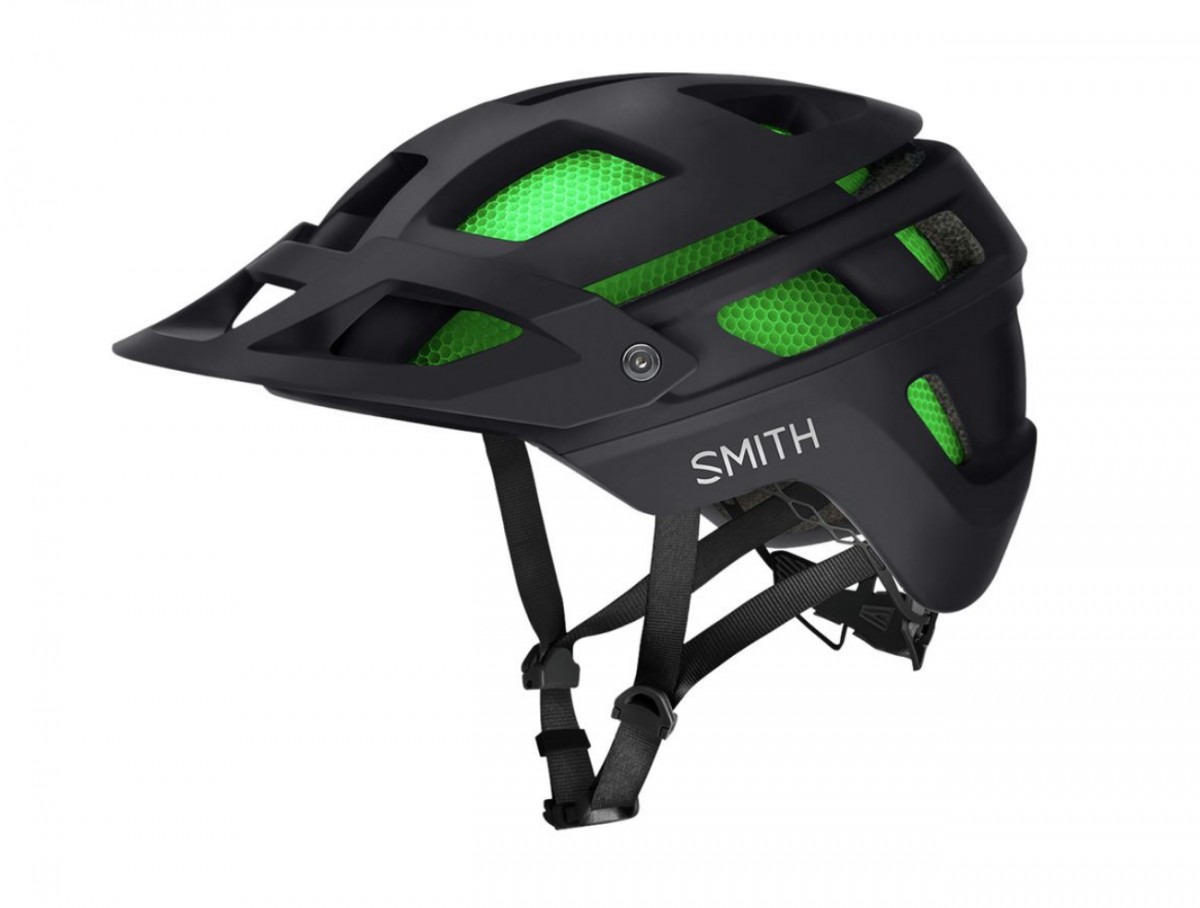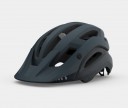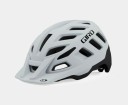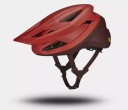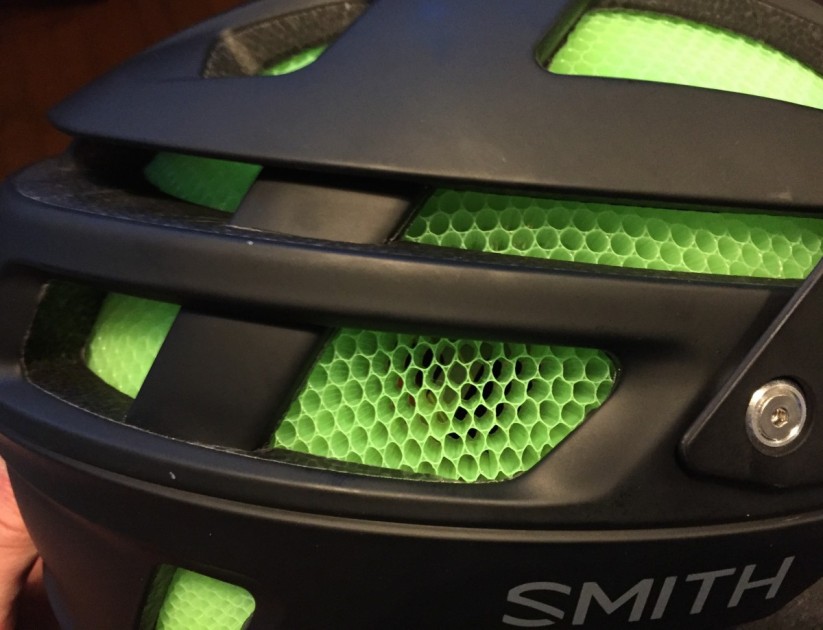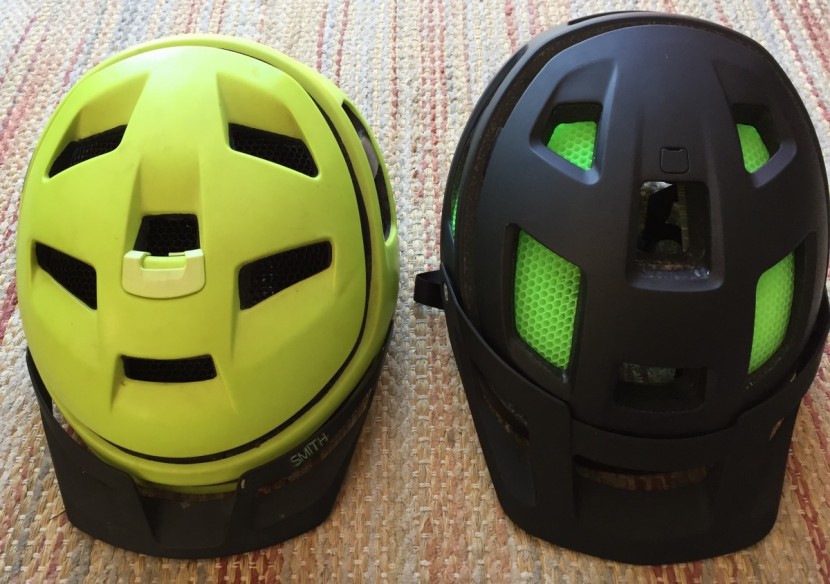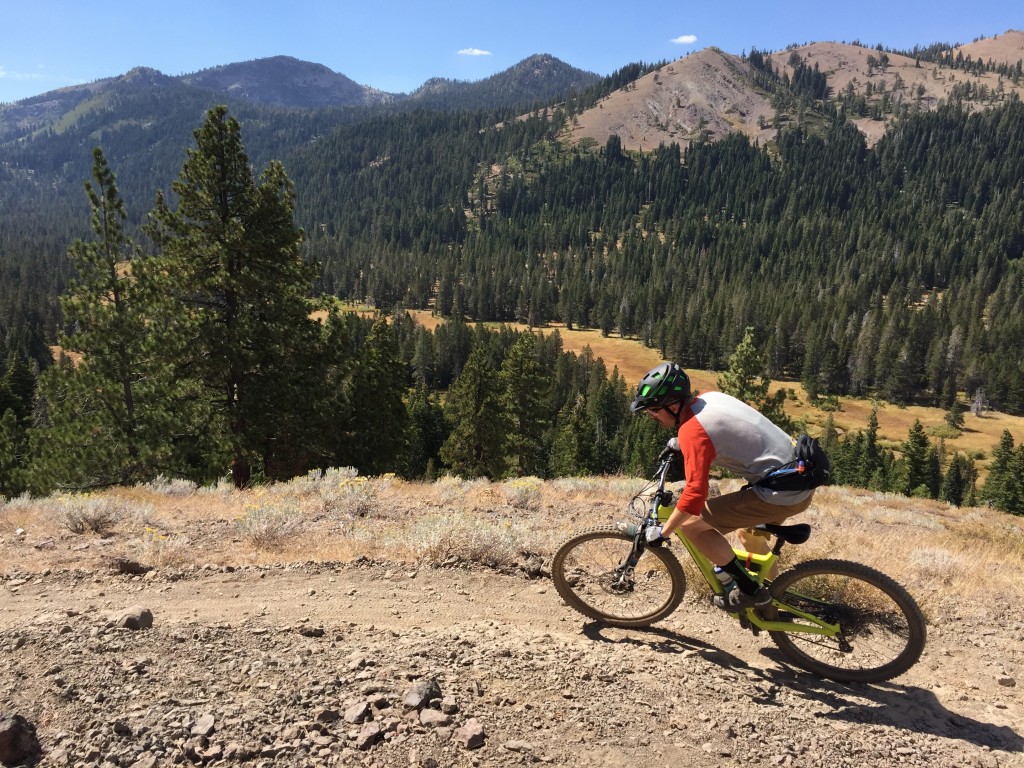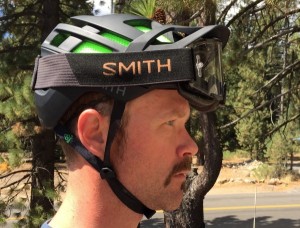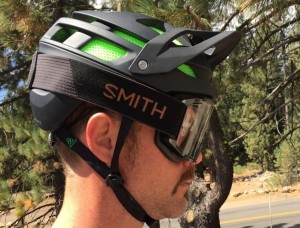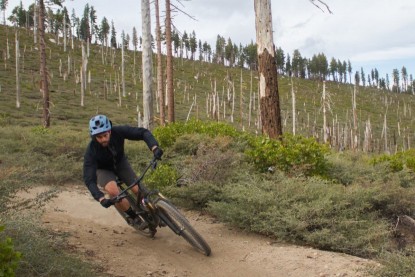Smith Forefront 2 Mips Review
Our Verdict
Compare to Similar Products
 This Product
Smith Forefront 2 Mips | |||||
|---|---|---|---|---|---|
| Awards | Best Overall Mountain Bike Helmet | Best for Protection | Best Bang for Your Buck | Another Great Value | |
| Price | $148.73 at REI Compare at 4 sellers | $181.73 at REI Compare at 3 sellers | $202.46 at Amazon Compare at 3 sellers | $99.95 at REI Compare at 4 sellers | $34.99 at Evo Compare at 2 sellers |
Overall Score  |
|||||
| Star Rating | |||||
| Bottom Line | An updated version of Smith's popular Forefront helmet with the same comfortable fit and several improvements | If you don't mind the price tag you'll be rewarded with top-of-the-line comfort, protection, and versatility | Fully-featured and high coverage, this is a protective new helmet from POC | An affordable option with all-day comfort | This stylish lid offers modern, all-mountain coverage that won't break the bank |
| Rating Categories | Smith Forefront 2 Mips | Giro Manifest Spher... | POC Kortal Race Mips | Giro Radix Mips | Specialized Camber |
| Protection (25%) | |||||
| Comfort (20%) | |||||
| Ventilation (20%) | |||||
| Features (15%) | |||||
| Weight (10%) | |||||
| Durability (10%) | |||||
| Specifications | Smith Forefront 2 Mips | Giro Manifest Spher... | POC Kortal Race Mips | Giro Radix Mips | Specialized Camber |
| Rotational Impact Protection System | MIPS | MIPS Spherical | MIPS Integra | MIPS | MIPS |
| Weight (Ounces, Grams) | 13.19 oz, 374g | 14.1 oz, 401g | 14.14 oz, 401g | 12.6 oz, 360g | 13.8 oz, 394g |
| Number of vents | 20 | 19 | 17 | 25 | 13 |
| Goggle or Sunglasses Integration | Sunglass & goggle integration | Integrated eyewear grippers | Yes | No | No |
| Adjustable Visor | Yes | Yes | Yes | Yes | No |
| Sizes | S, M, L | S, M, L | XS/SM, M/L L/XL | S, M, L, XL | XS, S, M, L, XL |
| Certifications | CPSC, CE EN1078 | CPSC Bicycle for ages 5+, CE EN1078 | CPSC Bicycle for ages 5+, EN1078, Dutch NTA 8776 e-bike, AS/NZS 2063 | CPSC, CE EN1078 | CPSC |
| Virginia Tech Helmet Safety Rating (if applicable) | 5-star | 5-star |
Our Analysis and Test Results
When the original Forefront helmet hit the market several years ago, its futuristic look and Koroyd material set it apart from the competition. Koroyd is a proprietary impact protection material that looks a lot like a honeycomb or a bunch of cross-sections of straws packed tightly together. The claimed benefits of using this material are that it's lightweight and provides impact resistance while still allowing for ventilation. Opinions on the original Forefront were mixed, with the primary complaint being that the Koroyd didn't allow for the same level of airflow as larger open ventilation holes. Enter the Forefront 2, Smith's updated version of the Forefront that attempts to address some of the issues with the original version.
Protection
In the world of mountain bike helmets, protection is the name of the game, and the Forefront 2 came to play. It has a high degree of head coverage, with a shape that comes down low on the back of the head. It doesn't have quite as much coverage as the POC Kortal Race or the Specialized Ambush, both of which have a slightly deeper fit that dips lower by the temporal lobe and back of the head, but it isn't that far off. That said, it has as much or more coverage than most of the other helmets in our test.
The Forefront 2 we tested is equipped with an industry-standard Mips liner. The idea behind the Mips liner is that it helps to reduce the rotational forces of an impact by providing a slip-plane that deflects some of the force through movement. Smith has been using Mips liners in their helmets for years and in the Forefront 2 it isn't noticeable, nor does it affect the way the helmet fits.
Smith has designed the Forefront 2 with strips of EPS foam on the inside that run fore and aft and side to side. These line the edges of the large Koroyd panels inside the helmet. The outer shell sits around the outside of the Koroyd panels and consists of a thin layer of EPS foam with holes for ventilation that is covered in a protective polycarbonate shell.
As mentioned above, one of the things that sets the Forefront 2 apart from the competition is their use of Koroyd. Koroyd's honeycomb structure features lots of tightly packed little tubes creating an impact-absorbing protective layer. The unique thing about the Koroyd is that it can absorb impact and allow air to pass through it at the same time. This means that you can cover more of the head with this material while keeping the weight low and still maintaining a reasonable level of ventilation. The tubes of the Koroyd are small enough that it stops most bugs from flying in, and prevents intrusion from sticks, rocks, and other hazards in the event of a crash.
The Koroyd in the Forefront 2 is split into four large panels, one on either side of the top of the head and two on either side of the back of the head. All but the three vents in the center of the helmet have Koroyd visible underneath them. Smith has designed a helmet that has only three completely open vent holes. As a result, it covers more of your head than any other helmet in our test. Other helmets have open vent holes that may allow hazards to penetrate them.
Comfort
Much like the original, the Forefront 2 has a comfortable and crowd-pleasing fit. This starts with the length and width, which fits a broad range of head shapes and sizes and are very similar to the previous version. Smith has also employed their Vaporfit adjustment system in the Forefront 2, so you can quickly and easily tighten and loosen it. Turning the dial pulls tension evenly from both sides on the adjustment straps for a snug and secure fit. The entire Vaporfit system can also be adjusted at its attachment points, found at the temples and the back of the head. Each attachment point has four holes, allowing you to adjust strap length to adjust the system for your comfort further.
Inside the helmet, you'll find minimal but well-placed anti-microbial padding from the temples across the forehead, with just a little on the top of the head. We'll go into more detail below, but the Forefront 2's ventilation is better than the original, and it increases this helmet's comfort as the temperatures rise.
The straps leave something to be desired though. Locking strap splitters at the bottom of each ear allow you to adjust the nylon ear and chin straps. The chin strap is adjusted and secured below the chin with a standard plastic buckle. This strap system works just fine, but the straps occasionally conflict with testers' ears and never sit quite as flat as we would like. Admittedly, this strap adjustment system works fine, but the POC Tectal Race and 100% Altec do it better. Their superior strap yokes prevent unwanted contact between the straps and your ears and keep the straps laying flat against your cheeks.
Ventilation
One of the biggest improvements made in the new Forefront 2 is increased ventilation. Smith accomplished this in a couple of ways. The first and most obvious difference is the size of the vent holes in the outermost part of the shell. Pretty much every vent is much larger than before, which allows more air to pass through. There is also a row of three vents in the center of the helmet that don't have any Koroyd underneath them. These open vents also have a small channel that allows air to flow from the front to the back. These changes may seem minor, but they do improve the ventilation compared to the original.
There are 20 total vents on the outside of the Forefront 2, 17 of which have Koroyd underneath them. While the Koroyd does allow air to pass through, most of the holes don't face the direction of travel, and moving air, as you ride. For example, the Koroyd over the forehead faces straight forward allowing for air to pass directly to the forehead. However, the Koroyd holes on top of the head face straight up and don't necessarily catch the air as you move forward. There also is only one air channel inside the helmet, so air has less of a chance to flow as well as it does in helmets with more channeling. The Bontrager Blaze and its WaveCel layer is somewhat similar to the Koroyd, though the gaps in the structure are slightly larger and airflow is marginally better.
The majority of our time spent testing the Forefront 2 was in Lake Tahoe in late summer. It rarely breaks the 90-degree mark in these parts, but at elevation the intense sun often makes it feel much warmer than it is. Our test rides ranged primarily between 70 and 85 degrees, with more than our fair share of that California sunshine. In that temperature range, our testers found the Forefront 2 to feel cooler than the previous version, and fairly cool in general.
During side by side ventilation testing, however, we found that helmets with fully open vents did feel cooler. Yes, helmets like the Giro Manifest and the 100% Altec, do allow more air to flow around the head than the Forefront 2, but it is still manageable until the temperatures really soar. Not surprisingly, we found the Smith Session to provide more ventilation, with large open vents and less Koroyd placed strategically around the sides of the helmet.
Features
The Forefront 2 is a top-of-the-line-helmet offered at a premium price that comes with virtually all the features you'd expect. We've touched on protective features like Koroyd and Mips above, as well as comfort features like the fit adjustment system and strap design. Optics integration is something that Smith has hung their hat on with their cycling helmets, and that continues with the Forefront 2.
The visor on the Forefront 2 adjusts into three positions and feels much sturdier than the one on the previous version. In its low position, the visor is a good length to block the sun from your eyes without obscuring your view of the trail ahead. It has a middle setting for those who don't like to see the visor at all when descending. In the high position, it flips way up to accommodate goggles when not in use. The visor rotates on durable metal hardware by the temples and has well-defined stopping points for each position.
The helmet also has a channel that rings the helmet and is designed to securely stow your sunglasses, either front or rear, when not in use. The arms of the glasses grab onto the helmet within the channel and hold relatively securely. We're a little wary of stowing our sunglasses in this way on rough trails, but it seems to work well on smoother trails and roads.
It also has an integrated camera and light mount on the top of the helmet. This mount is a small threaded metal insert that hides under a small plastic cover. Use of the mount requires a special mounting kit that is available as an aftermarket purchase. A helmet bag is also included.
Weight
Weighing in at 374 grams, or 13.19 oz, the Forefront 2 falls into the same weight range as several other helmets in our test. The Smith Session, Leatt DBX 3.0, Giro Chronicle, and the Troy Lee A2 all weigh between 5-10 grams more than the Forefront 2. The Specialized Ambush with ANGi managed to come in at 350 grams, which is just 24 grams lighter. Differences in weight that small are hardly noticeable, but all other things being equal, lighter is better. In contrast, the Oakley DRT5 weighs over 100 grams more than the Forefront 2 and offers a similar level of protection, comfort, and features.
Durability
Throughout testing, the Forefront 2 proved to be a highly durable helmet. All of the adjustable components like the Vaporfit system, the straps, and the visor continue to work well. The EPS foam is covered with a dense layer of plastic that wraps around the edges in all the places that are susceptible to damage. The plastic outer shell shows no signs of denting, although there are a couple of incredibly minor scratches in the matte finish from unexpected low hanging branches. Beyond that, the Forefront 2 still looks as new as the day we got it.
Value
The Forefront 2 is one of the most expensive helmets in our test selection. If there's one piece of protective equipment you should splurge on, however, we feel that a quality helmet is it. The Forefront 2 is most definitely a high-quality mountain bike helmet with protective features like a Mips liner and Koroyd, a great fit, quality adjustments, and a unique look. It also comes with a lifetime warranty. Considering the all-around performance and protection that this helmet offers, we feel that it is a good value assuming you can justify the expense.
Conclusion
It's not cheap, but the Smith Forefront 2 Mips is one of those products that we feel is worth the added expense. This updated version maintains all of the things we liked about the old version while addressing its weaknesses. It still has the same great fit and coverage but with a slimmer and lower profile shape all around. The most notable improvements are in the helmet's ventilation. With an updated vent layout that includes 20 vents, 3 of which are wide open down the middle, the Forefront 2 has much better airflow than the old version and now performs nearly as well as much of the competition. A new design also resulted in a sturdier and more robust visor that works better with goggles. Overall, we are incredibly impressed with the Forefront 2 and it quickly became one of the favorite models in our test.
Other Versions and Accessories
Smith makes a full line of cycling helmets including the Forefront 2 Mips reviewed here. It is available in seven different color options to suit a wide range of tastes. Some of the color options are available without Mips as well and retail for a bit less.
The Session is another great helmet in Smith's lineup that provides a similar level of coverage with better ventilation and a lower retail price.
To use the integrated camera and light mount on the Forefront 2 you'll need to purchase the Forefront 2 Mount Kit. This mount kit retails for $15 and works on both the original Forefront and Forefront 2 models.

